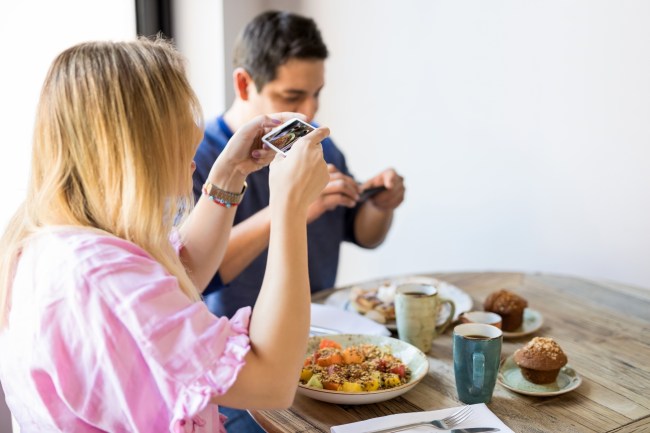
Shutterstock
One of my New Year’s Resolutions (yeah, I’m a resolution guy) for this year is to disconnect from my mobile device more–“Split needless time on my phone by 30%” was the exact verbiage. Far too many times have I found myself sifting through endless pages on PornHub, and by the time I’ve turned it off, my newborn son has grown up and now is a sophomore in college. His name is Jacob. I think.
Oh, and I just finished the most recent season of Black Mirror and now I’m seriously considering totally disconnecting–moving to a cabin in Montana, fishing for food, and showering in a lake.
I am far from the only one who lives his life through a 5.5 inch screen.
According to a new study commissioned by Nutrisystem, one in three Americans can’t eat a meal without being on their phone.
Via New York Post:
A study into the eating habits of 2,000 Americans found many of us are increasingly distracted when eating and 29 percent say their phone now accompanies EVERY meal that they eat.
Even more than that — over half of those studied say their phone is a mainstay at most of their meals and only 17 percent admit to never having their phone at the table.
Further, 35 percent of those aged 18-25 can’t be without their phone for every meal and 72 percent often watch TV while eating.
This not only takes away from enriching dinner time activities like engaging in actual conversations with friends or family, but technological distractions destroy our concept of portion control. The study found that thirty-four percent of Americans polled said they eat so fast in front of their TV or on their phone that they can’t believe how quickly they scarfed down their food.
I challenge all you bros to spend to eat the rest of the week’s meals with your phone in the other room. Start now before you pass down the habit to your little tykes.